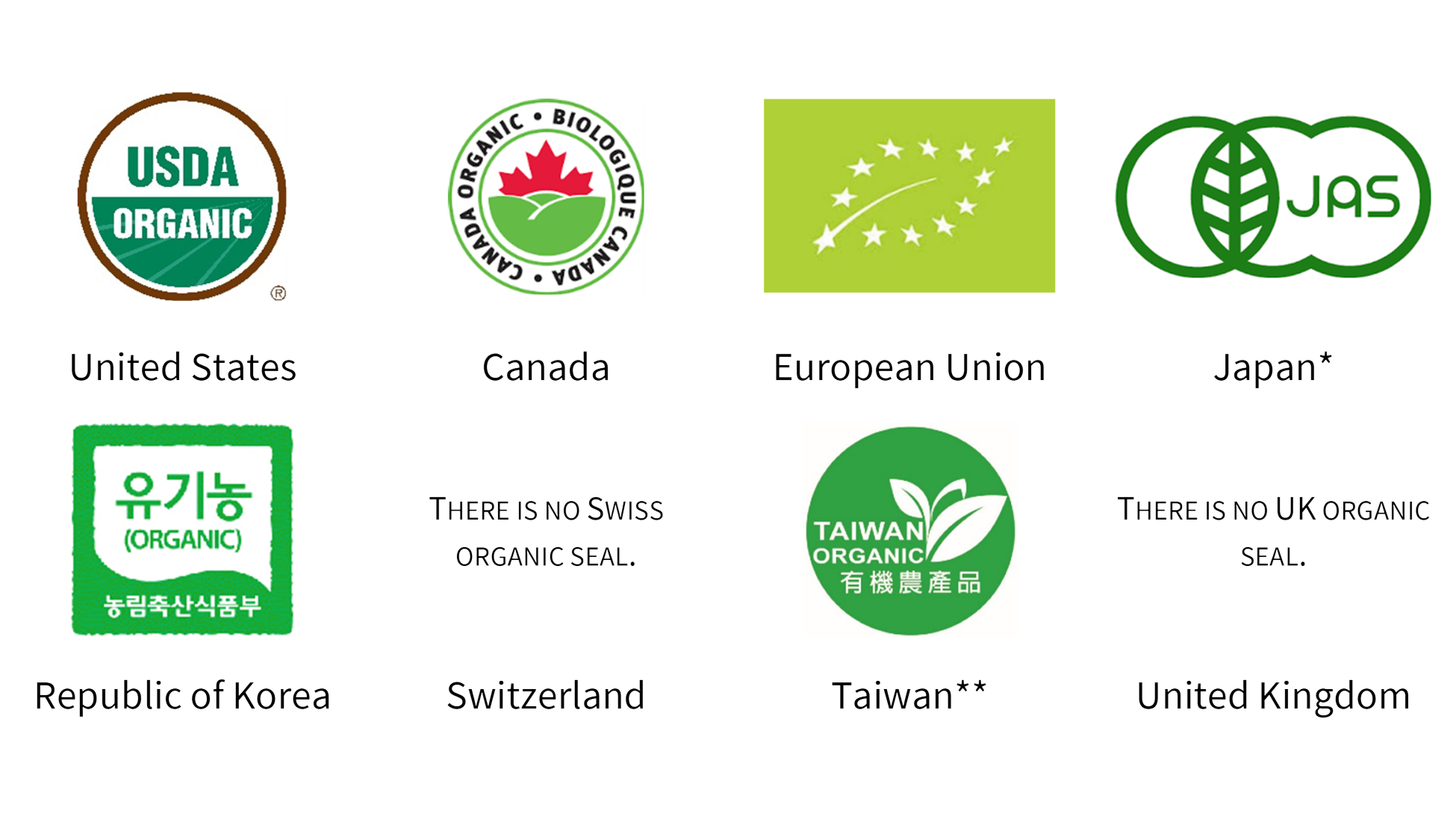Last updated – March 2025
The United States (U.S.) facilitates trade with many other trading partners. This opens new markets and provides variety for consumers.
The National Organic Program (NOP) works with the U.S. Department of Agriculture’s (USDA) Foreign Agricultural Service (FAS) and Office of the United States Trade Representative to establish international trade arrangements for organic products. The most common type of organic trade arrangement is an organic equivalence arrangement. Equivalence arrangements eliminate the need for organic operations to have separate organic certification to the USDA standards and the other country’s standards. This avoids a double set of fees, inspections, and paperwork.
Trade opportunities for USDA organic operations vary by an operation’s physical location.
The USDA currently has organic equivalence with the following governments:
USDA also authorizes two governments under a recognition agreement to accredit certifying agents in their respective countries to the USDA organic standards. USDA certified products produced or processed in these countries may be exported directly to the U.S. only. The following two foreign governments may certify farms and processing facilities:
General Import/Export Requirements
On March 19, 2024, the USDA implemented significant changes to the USDA organic regulations under its Strengthening Organic Enforcement (SOE) Final Rule. Key impacts of this rule on imports and exports of organic products include the following:
NOP Import Certificates – Each shipment of organic products into the United States must be associated with a valid electronic NOP Import Certificate. The NOP Import Certificate provides traceability to the port of entry and ensures and auditable record trail. Accredited certifiers are responsible for issuing the NOP Import Certificate in the USDA’s Organic Integrity Database at the request of their clients exporting products from other countries to the United States. Importers of organic products to United States must then use the NOP Import Certificate data to complete their filing in the U.S. Customs and Border Protection’s (CBP) import system ACE (Automated Commercial Environment).
Expanded Certification Requirements – The SOE rule expanded the types of operations in the organic supply chain that must be certified. These include businesses importing organic products to the United States and exporting organic products for sale in the United States. Businesses engaged in buying, selling, facilitating sale or trade on behalf of a seller, or are otherwise an intermediary in the organic supply chain must become certified unless they meet one of the limited exemptions to certification. It is important to note that an operation exempt from certification is not exempt from the handling and recordkeeping requirements.
In addition to organic requirements, traded agricultural products must meet all general or commodity-specific import requirements. U.S. importers and customs services can provide detailed guidance.
Exporting U.S. Organic Products to:
Canada | European Union | Taiwan | Japan | Korea | Switzerland | United Kingdom | Mexico
Importing Foreign Organic Products from:
Canada | European Union | Taiwan | India | Israel | Japan | New Zealand | Korea | Switzerland | Mexico | United Kingdom
International Organic Logos

*The JAS seal may only be applied by either a JAS-certified importer or a U.S. exporter contracted with a JAS-certified importer.
**U.S. operations may NOT use the Taiwan organic mark; this seal is only permitted for use by Taiwan operations.
Trade Resources
- How Does USDA Assess Organic Equivalence with other Countries?
- Electronic NOP Organic Import Certificates
- Global Agricultural Trade System (GATS) – to access data for organic imports based on available Harmonized Tariff Schedule (HTS) codes, use the following steps:
- Once on the GATS web page, select “Standard Query” in the left navigation column.
- Under Product Groups (third table heading across the top), use the dropdown menu to select “Organics-Selected.”
- From there, adjust your query as needed.
- Once you have selected the desired specifications, click the “Retrieve Data” button to complete the search.
- Global Agricultural Information Network (GAIN) – USDA FAS trade reports provide agricultural market intelligence, insight, and analysis of interest to exporters of U.S. agricultural products, including organic products.
- Harmonized Tariff Schedule (HTS) Codes for Organic Products – on the GATS website, hover the cursor over “Reports” in the upper right and click on “Organic – Selected HS Code Listing.” The full HTS is available on the U.S. International Trade Commission website.
- Many other countries accept USDA organic products without a specific trade partnership. See www.globalorganictrade.com for more information.
Compliance & Enforcement
The National Organic Program is committed to protecting organic integrity through the following activities:
- Audits of certifying agents to ensure appropriate monitoring of organic products.
- Annual on-site inspections of approximately 30,000 organic operations by certifying agents.
- Organic enforcement activities, which may include suspending or revoking organic certificates for regulatory non-compliance.
- Residue testing program to verify that prohibited pesticides aren’t being applied to organic crops.
- Issue-based investigations (e.g., country- or commodity-specific).
- If you suspect a violation of the USDA organic regulations or terms of a trade arrangement, there is a process to file a complaint through the NOP Complaint Portal.
About NOP

